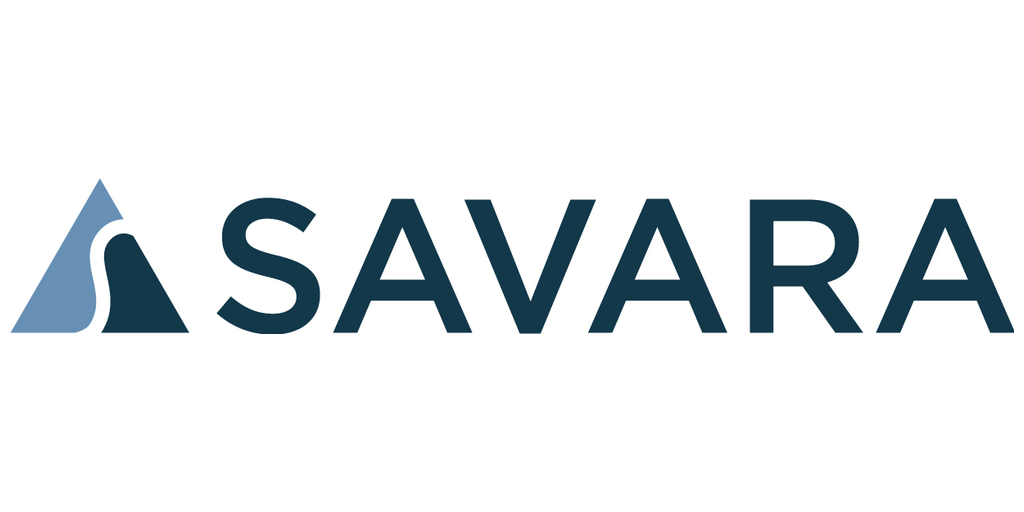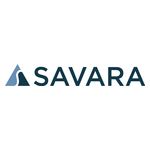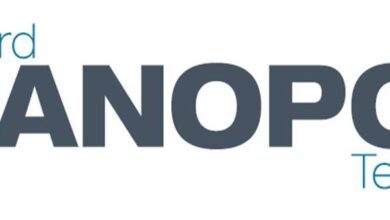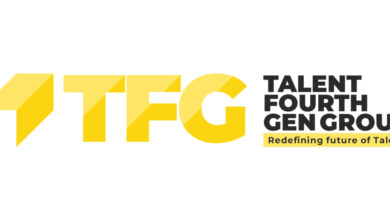Savara Announces New Data from Pivotal Phase 3 IMPALA-2 Trial of Molgramostim Nebulizer Solution (Molgramostim) in Patients with Autoimmune Pulmonary Alveolar Proteinosis (aPAP) Were Presented at the European Respiratory Society (ERS) Congress 2024

Mean Change From Baseline in Disease Severity Score (DSS) Showed Significant Improvement with Molgramostim Compared with Placebo at Weeks 24 and 48
Responder Analysis Results for Percent Predicted Diffusing Capacity of the Lungs for Carbon Monoxide (DLCO%) Showed Significantly Higher Proportions of Molgramostim Responders Compared with Placebo at Weeks 24 and 48
Responder Analysis Results for St. George’s Respiratory Questionnaire (SGRQ) Total Score Supported Numeric and Significant Improvements with Molgramostim Compared with Placebo at Weeks 24 and 48, Respectively
Ground Glass Opacification (GGO) Score, a Measure of Surfactant Burden, Significantly Improved with Molgramostim Compared with Placebo at Week 24
LANGHORNE, Pa.–(BUSINESS WIRE)–Savara Inc. (Nasdaq: SVRA) (the Company), a clinical stage biopharmaceutical company focused on rare respiratory diseases, today announced that new data from the Phase 3 IMPALA-2 clinical trial of molgramostim in patients with autoimmune Pulmonary Alveolar Proteinosis (aPAP) were presented at the European Respiratory Society (ERS) Congress 2024 in Vienna, Austria. The poster from this presentation can be found here.
As previously announced, the IMPALA-2 trial met its primary endpoint, achieving statistical significance in change from baseline in hemoglobin-adjusted percent predicted diffusing capacity of the lungs for carbon monoxide (DLCO%) at Week 24. This statistically significant treatment difference was sustained through Week 48, a secondary endpoint, which demonstrated durability of effect. The treatment difference between molgramostim and placebo for mean change from baseline to Week 24 in SGRQ Total Score, a secondary endpoint, achieved statistical significance. Two additional secondary endpoints reached nominal significance: SGRQ Activity Score at Week 24 and exercise capacity using a treadmill test at Week 48. Molgramostim was well tolerated and demonstrated a favorable benefit/risk profile in the IMPALA-2 trial. In addition, 97% of patients completed the 48-week double-blind treatment period, with only 2 patients discontinuing molgramostim due to adverse events which were assessed by the investigator as not related to study treatment. One hundred percent of the patients who completed the double-blind period elected to participate in the 96-week open-label period.
New disease severity, responder analyses, and other results measuring surfactant burden presented today at ERS, and summarized below, further support the beneficial effects of molgramostim compared with placebo.
Disease Severity Score (DSS)
The mean change from baseline in disease severity score, which reflects symptoms and arterial partial pressure of oxygen, was significantly more improved at Weeks 24 and 48 with molgramostim compared with placebo.
DLCO% Responder Analysis
Results from a DLCO% responder analysis demonstrated significantly higher proportions of responders with molgramostim compared with placebo at Weeks 24 and 48. Odds ratios were determined for patients achieving ≥ 5, 7, and 10 percentage point improvements in DLCO% from baseline.
St. George’s Respiratory Questionnaire (SGRQ) Total Score Responder Analysis
Results from an SGRQ Total Score responder analysis showed that numerically (at Week 24) and significantly (at Week 48) higher proportions of patients achieved each responder threshold of ≥ 4-, 8-, and 12-point improvements with molgramostim compared to placebo.
Ground Glass Opacification (GGO) Score Results
GGO score, a radiological measure of surfactant burden, was significantly improved with molgramostim compared with placebo at Week 24.
“The IMPALA-2 results demonstrate molgramostim’s ability to correct the pathobiology causing aPAP lung disease and improve its cardinal manifestations,” said Bruce Trapnell, M.D., Professor of Medicine and Pediatrics at the University of Cincinnati College of Medicine and the Lead Clinical Investigator of the IMPALA-2 trial. “Specifically, molgramostim reduced surfactant burden, increased pulmonary gas transfer, improved health-related quality of life, increased exercise capacity, and was well-tolerated in patients with aPAP.”
Savara plans to complete submission of the Biologics License Application (BLA) for molgramostim in aPAP in the first half of 2025. Molgramostim has been granted Orphan Drug, Fast Track, and Breakthrough Therapy designations from the U.S. Food and Drug Administration, Orphan Drug designation from the European Medicines Agency and Innovative Passport and Promising Innovative Medicine designation from the UK’s Medicines and Healthcare Products Regulatory Agency for the treatment of aPAP.
About the IMPALA-2 Trial
IMPALA-2 is a global, pivotal, Phase 3, 48-week, randomized, double-blind, placebo-controlled clinical trial designed to compare the efficacy and safety of molgramostim 300 mcg self-administered once daily by inhalation with matching placebo in patients with aPAP. The trial is being conducted at 43 clinical trial sites across 16 countries, including the U.S., Canada, Japan, South Korea, Australia, and countries in Europe, including Turkey. The primary efficacy assessment is diffusing capacity of the lungs for carbon monoxide (DLCO), a gas exchange measure, and the primary endpoint is change from baseline to Week 24 in percent predicted DLCO, with a secondary endpoint of change from baseline to Week 48 in percent predicted DLCO. Three additional secondary efficacy variables evaluate clinical measures of direct patient benefit: St. George’s Respiratory Questionnaire (SGRQ) Total Score, SGRQ Activity Score, and exercise capacity using a treadmill test, with each endpoint measured at Weeks 24 and 48. The primary time point for efficacy assessments is at Week 24; however, efficacy was assessed through Week 48 to evaluate durability of effect. Safety was assessed through Week 48. All patients who completed the 48-week double-blind treatment period continued into a 96-week open-label period during which they are receiving molgramostim 300 mcg administered once daily.
About aPAP
Autoimmune PAP is a rare lung disease characterized by the abnormal build-up of surfactant in the alveoli (or air sacs) of the lungs. Surfactant consists of proteins and lipids and is an important physiological substance that lines the alveoli to prevent them from collapsing. In a healthy lung, excess surfactant is cleared and digested by immune cells called alveolar macrophages. Alveolar macrophages need to be stimulated by granulocyte-macrophage colony-stimulating factor (GM-CSF) to function properly in clearing surfactant, but in autoimmune PAP, GM-CSF is neutralized by antibodies against GM-CSF, rendering the macrophages unable to adequately clear surfactant. As a result, an excess of surfactant accumulates in the alveoli, causing impaired gas exchange, resulting in clinical symptoms of shortness of breath, often with cough and frequent fatigue. Patients may also experience episodes of fever, chest pain, or coughing up blood, especially if secondary lung infection develops. In the long-term, the disease can lead to serious complications, including lung fibrosis and the need for a lung transplant.
About Savara
Savara is a clinical stage biopharmaceutical company focused on rare respiratory diseases. Our lead program, molgramostim nebulizer solution, is an inhaled granulocyte-macrophage colony-stimulating factor (GM-CSF) in Phase 3 development for autoimmune pulmonary alveolar proteinosis (aPAP). Molgramostim is delivered via an investigational eFlow® Nebulizer System (PARI Pharma GmbH) specifically developed for inhalation of a large molecule. Our management team has significant experience in rare respiratory diseases and pulmonary medicine, identifying unmet needs, and effectively advancing product candidates to approval and commercialization. More information can be found at www.savarapharma.com. (X, formerly known as Twitter: @SavaraPharma, LinkedIn: www.linkedin.com/company/savara-pharmaceuticals/).
Forward-Looking Statements
Savara cautions you that statements in this press release that are not a description of historical fact are forward-looking statements within the meaning of the Private Securities Litigation Reform Act of 1995. Forward-looking statements may be identified by the use of words referencing future events or circumstances such as “expect,” “intend,” “plan,” “anticipate,” “believe,” and “will,” among others and include, but are not limited to, the anticipated timing of our BLA submission. Savara may not actually achieve any of the matters referred to in such forward-looking statements, and you should not place undue reliance on these forward-looking statements. These forward-looking statements are based upon Savara’s current expectations and involve assumptions that may never materialize or may prove to be incorrect. Actual results and the timing of events could differ materially from those anticipated in such forward-looking statements as a result of various risks and uncertainties, which include, without limitation, the risks associated with our ability to successfully develop, obtain regulatory approval for, and commercialize molgramostim for aPAP; the risks and uncertainties related to the impact of widespread health concerns or changing economic or geopolitical conditions; the ability to project future cash utilization and reserves needed for contingent future liabilities and business operations; the availability of sufficient resources for Savara’s operations and to conduct or continue planned clinical development programs; and the timing and ability of Savara to raise additional capital as needed to fund continued operations. All forward-looking statements are expressly qualified in their entirety by these cautionary statements. For a detailed description of our risks and uncertainties, you are encouraged to review our documents filed with the SEC including our recent filings on Form 8-K, Form 10-K and Form 10-Q. You are cautioned not to place undue reliance on forward-looking statements, which speak only as of the date on which they were made. Savara undertakes no obligation to update such statements to reflect events that occur or circumstances that exist after the date on which they were made, except as may be required by law.
Contacts
Savara Inc. IR & PR
Anne Erickson ([email protected])
(512) 851-1366





